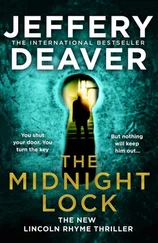Meanwhile, Adam and Erick had walked a few blocks to the bus station on Evans Street, bought tickets and left town.
After leaving Harper’s seaside company, Shaw had driven the Winnebago to a campground east of Tacoma, and parked it there. He’d Ubered to a nearby car rental agency and gotten the Kia, which he’d then driven into the Manitou neighborhood, with Crowe clumsily tailing all the way.
Shaw had parked in front of the Hermanos Alverez bodega. He had gone inside the store, and for a twenty-dollar bribe and several bags of groceries he didn’t need, bought the right to slip out the back door.
From there, to the bus station, at which the ante increased significantly, and it cost him five hundred dollars to learn the destination of the tickets the two boys had bought — a little town called Hope’s Corner, eighty miles southeast of Tacoma, near Mount Rainier National Park.
This fact was good news. They were both alive.
He’d returned to the car, out the bodega’s front door, dumped the groceries in the trunk. When he pulled into traffic, Crowe’s SUV was not far behind. It had been while the car was parked in front of the store that Crowe had clamped on the tracker.
Then the fun began.
Shaw had driven a circuitous route in the general direction of Hope’s Corner, though he had stopped every fifteen miles or so, buying water or coffee or snacks or yet another unnecessary road map. And always asking the clerks and customers the same question.
“Say, you noticed a yellow Volkswagen bug coming through here? It’s my two buddies. We were going fishing at Wuikinuxv Falls but there’s been a change of plans and I can’t reach ’em. Those boys’re just not picking up their phones.”
The point of this exercise was to misdirect Crowe as to the suspects’ means of transport and their destination. Now, having used the boulder to clear the field for himself, the man was speeding in pursuit of a gaudy, nonexistent car, to a town whose name was hard to pronounce and harder yet to spell... and that lay in the exact opposite direction of Hope’s Corner, where the suspects really were.
Colter Shaw now rolled past the Hope’s Corner WELCOME TO sign and surveyed the burg. The downtown embraced a diner, a mechanic’s garage, a general store and two gas stations, one of which was also a bus way station; it would be there that the suspects disembarked.
The tiny place also featured an overlook from which you got a grand view of Mount Rainier, the tallest peak in the state. It was designated a Decade Volcano, one of the most hazardous in the world. Shaw knew this because he and Tom Pepper had once considered climbing. But while the threat of eruption wasn’t a deterrent, the surfaces were. They were largely ice and snow, and that made for a specialized technique that didn’t interest them much.
Shaw steered the Kia into the pump area of the larger gas station, refueled and examined the damage to the car from his boulder-avoiding plunge. Cosmetic only. Expensive, of course. But Shaw wasn’t concerned; he always bought the loss/damage insurance. When finished at the pump, he drove the car into a shaded spot at the side of the general store. Climbing out, he went to the trunk, opened it and, after looking round and seeing no humans or security cameras, removed his concealed carry weapon — a single-stack Glock 42, the .380 caliber, in a Blackhawk holster. He chambered a round and fitted the holster inside his right waistband, making sure the securing hook snugly held his belt; the fastest draw in the world is pretty useless if the holster comes along for the ride.
Now, to determine where exactly were the suspects.
Shaw considered the timing. The bus was scheduled to arrive thirty minutes ago. Had they hiked out from Hope’s Corner? Had they met some friends near here?
Neither Adam nor Erick appeared to be neo-Nazi but what if they were operating undercover? After all, the defamatory and racist graffiti had persisted in Pierce County for more than a year, and no one had been caught. Now that they’d been identified and were in the open maybe they’d come here. Washington State had an unfortunate history of hate groups and white supremacist organizations, Shaw knew from several reward-seeking jobs on the West Coast. There were nearly two dozen active extremist groups in the state, including two KKK chapters.
From the overlook, Shaw gazed at the massive expanse that could easily hide a militia compound.
Or had the boys simply panicked after the shooting and fled as far as their money would take them, or to the home of a friend who’d shelter them — a friend that no one back home knew about?
So, Shaw told himself, assess.
The odds that they had arrived, disembarked and hiked out into the wilderness? Fifteen percent. This territory would require some serious gear and a level of fitness and knowledge of the outdoors that the young men didn’t seem to have.
The likelihood that they were planning to meet somebody to drive them elsewhere? Forty percent.
Hitching down one of the crossroads that went east and west out of Hope’s Corner? Possible, though a challenge; there was little traffic on either road. He gave it twenty percent.
Sheltering with a friend? Fifteen percent.
There was another option as well. Were they still here, in Hope’s Corner?
Shaw had donned his brown sport jacket. To make sure his concealed stayed concealed, though, he took the added step of untucking his shirt. His pistol permit was valid in the state but he didn’t need the attention that would ensue if someone spotted the grip of his weapon.
He began a stroll through the town, eyes scanning for the two.
They weren’t in either gas station.
The general store was next. He stepped onto the low, saggy wooden porch and pushed inside, hand low, near the gun. No Erick, no Adam.
He entered the restroom, which he had to use anyway; they weren’t there.
The establishment was a combination store and restaurant, where a half-dozen diners sat at a chipped linoleum counter. He snagged a can of Fix-a-Flat, being spare-less now, and perched on a stool to order a turkey sandwich and a large coffee to go. When the order was up he took the bag and the can to the register. He handed the check to the middle-aged man in a beige polyester shirt embroidered with a pattern of chains.
Shaw set down a hundred dollar bill.
The man grimaced. “Sorry, mister, I can’t change that.”
“I don’t want change.”
Eyes cautious now.
“The son of a friend of mine’s run off. I’m helping find him. He was with another guy. Think he might’ve come in on that bus from Tacoma.”
One of the reasons Shaw shaved before a job, polished his shoes and dressed in a sport coat and pressed shirt was to give the impression of legitimacy. The sort who really would help a friend find a boy. He shot the man another stage smile.
“Here’s his picture.” He displayed a photo of Erick. The boy was in his football uniform.
Shaw wondered if the clerk watched the news from Tacoma and had heard of the shooting at the church. Apparently not. He asked only, “What’s he play?”
“He’s a receiver,” Shaw vamped. “Can catch a pass one handed.”
“No.”
“He can.”
“Why’d he run off?”
Shaw shrugged. “Being a kid.”
The bill vanished into the man’s pocket. “Yeah, they were here, thirty minutes ago. Bought some food and water. Bought a disposable phone too. And a prepaid card for the minutes.”
“You overhear where they were going?”
“No.”
“Where could they get from here on foot?”
A who-knows shrug. “There’re a dozen cabins in the foothills.” Another shrug meant: good luck finding them.
“Any towns in walking distance?”
Читать дальше
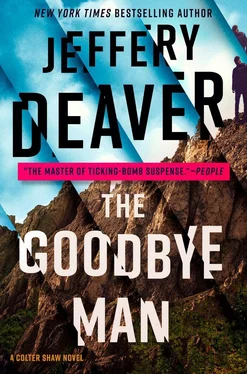
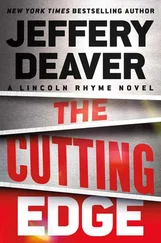

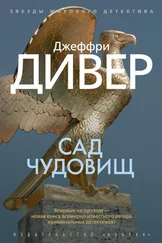
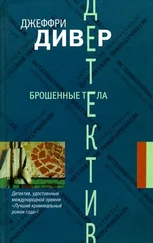

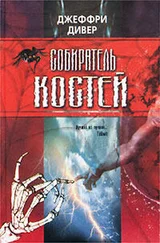
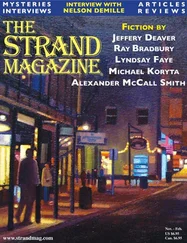
![Джеффри Дивер - Where the Evidence Lies [A Lincoln Rhyme Short Story]](/books/403782/dzheffri-diver-where-the-evidence-lies-a-lincoln-r-thumb.webp)

